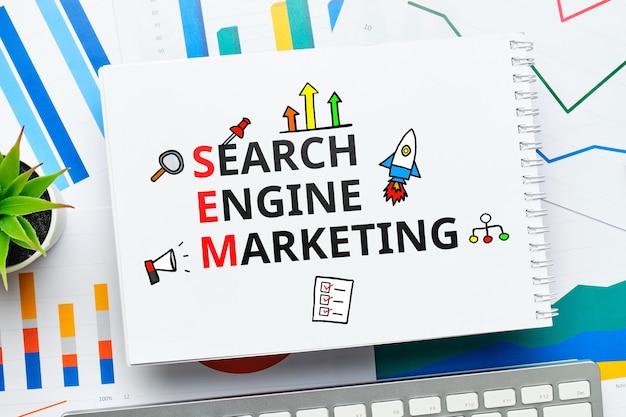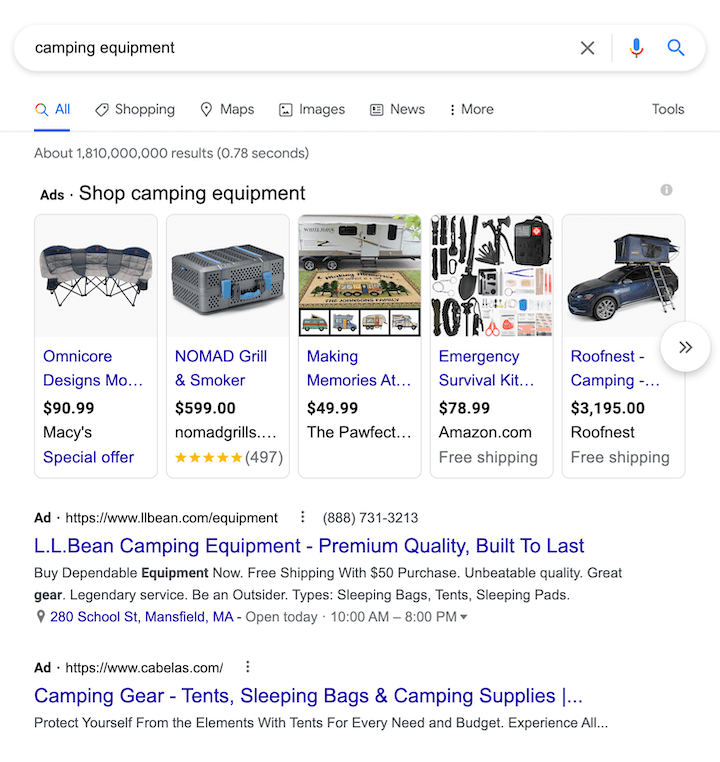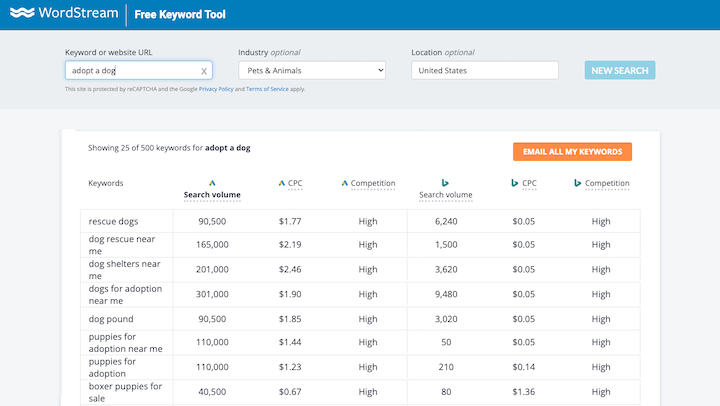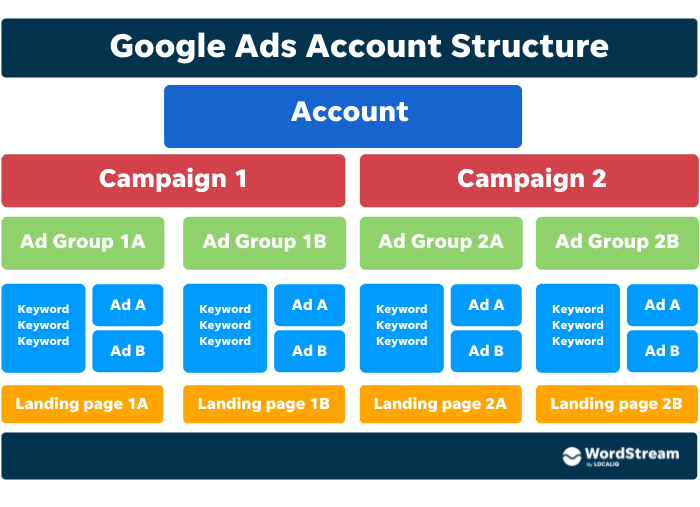
Introduction
In the digital age, search engine marketing (SEM) has emerged as a powerful tool for businesses to enhance their online visibility, drive targeted traffic, and achieve remarkable success. For digital marketing agencies, mastering the art of search engine marketing is crucial to delivering impactful results for their clients. In this article, we will explore the significance of search engine marketing and how digital marketing agencies can harness its power to drive online success through paid advertising.
- Understanding Search Engine Marketing (SEM): Search Engine Marketing, also known as paid search advertising or pay-per-click (PPC) advertising, is a form of online advertising that enables businesses to display ads prominently in search engine results. It involves bidding on keywords relevant to their target audience and paying only when users click on their ads. SEM allows businesses to reach potential customers precisely when they are actively searching for products or services, making it highly effective in driving targeted traffic and generating leads.
- Setting Clear Campaign Goals: Digital marketing agencies should work closely with their clients to define clear campaign goals and objectives. Whether it’s increasing website traffic, driving conversions, or boosting brand awareness, having well-defined goals sets the foundation for a successful SEM campaign. Clear goals also enable agencies to measure the effectiveness of their campaigns and make data-driven optimizations.
- Keyword Research and Selection: Keyword research is a fundamental aspect of SEM. Digital marketing agencies should conduct thorough keyword research to identify relevant and high-value keywords that align with their clients’ target audience. By selecting the right keywords, agencies can optimize ad campaigns for maximum visibility and relevancy, ensuring they appear in front of the right audience at the right time.
- Crafting Compelling Ad Copy: Creating compelling ad copy is essential to stand out in search engine results and attract clicks. Digital marketing agencies should focus on crafting concise, compelling, and relevant ad copy that highlights the unique selling propositions of their clients’ products or services. By incorporating targeted keywords and compelling calls-to-action, agencies can increase click-through rates and drive more qualified traffic to clients’ websites.
- Landing Page Optimization: Driving traffic through SEM is only half the battle; digital marketing agencies should ensure that the landing pages where users are directed are optimized for conversions. Agencies should focus on creating landing pages that align with the ad’s messaging, provide a seamless user experience, and have clear calls-to-action. Optimizing landing pages for fast loading times, mobile responsiveness, and persuasive design elements increases the chances of converting visitors into customers.
- Ad Campaign Monitoring and Optimization: SEM campaigns require continuous monitoring and optimization to maximize results. Digital marketing agencies should closely monitor campaign performance, track key metrics such as click-through rates, conversion rates, and cost per conversion. By analyzing data and making data-driven optimizations, agencies can improve ad targeting, refine keyword strategies, adjust bids, and allocate budgets effectively to achieve better campaign performance.
- Remarketing and Audience Targeting: Digital marketing agencies can leverage remarketing and audience targeting to further enhance SEM campaigns. Remarketing allows agencies to target users who have previously visited the client’s website, reinforcing brand visibility and increasing conversion rates. Audience targeting enables agencies to reach specific segments based on demographics, interests, or browsing behavior, allowing for more precise ad targeting and improved campaign performance.

Search Engine Marketing (SEM): An Overview and Effective Practices
Search Engine Marketing (SEM): A Powerful Tool for Business Growth in a Competitive Landscape
In today’s fiercely competitive business environment with countless companies seeking online visibility, search engine marketing (SEM) has emerged as a vital tool to promote your products and expand your business.
This comprehensive guide will provide you with an introduction to the fundamentals of search engine marketing and offer valuable insights, tips, and strategies to help you excel in this digital advertising realm.

Exploring Search Engine Marketing – A Comprehensive Introduction
Search engine marketing (SEM) involves the practice of promoting a business through paid advertisements displayed on search engine results pages (SERPs). Advertisers participate in keyword bidding, aiming to target users on platforms like Google and Bing when they search for specific products or services. This approach allows advertisers to showcase their ads alongside relevant search results.
Pay-per-click (PPC) ads, as they are commonly known, come in diverse formats. Some are concise, text-based ads, while others, like product listing ads (PLAs) or Shopping ads, feature visual and product-oriented content, providing users with quick access to essential information like prices and reviews.
The undeniable strength of search engine marketing lies in its capacity to present ads to highly motivated customers who are ready to make purchases at the precise moment they’re seeking the product or service. This unique feature makes search engine marketing exceptionally effective and a potent tool for business growth.
SEM vs. SEO
SEM, which stands for “search engine marketing,” mainly revolves around paid search advertising. Companies invest in Google to display their ads within search results.
In contrast, search engine optimization (SEO) differs, as it doesn’t entail payment to Google for traffic and clicks. Instead, it centers on securing an organic position in search results by offering the most relevant content for specific keyword searches.
Both SEO and SEM are vital components of a comprehensive online marketing strategy. SEO drives consistent, enduring traffic to the top of the funnel, while search engine ads deliver cost-effective conversions to the bottom of the funnel.
Keywords: The Core of Search Engine Marketing
Keywords serve as the cornerstone of search engine marketing. Users input keywords during searches to find the information they seek, making keywords the fundamental building blocks of search engine marketing.

SEM Keyword Research
Effective keyword management necessitates thorough research to identify relevant terms for your business. These terms should align with what potential customers are likely to search for when seeking your products and services. WordStream’s Free Keyword Tool is an invaluable resource for conducting this research.
By entering a keyword related to your business or service, you can access a range of suggested keywords that can serve as the foundation for various search engine marketing campaigns. WordStream’s Free Keyword Tool also provides valuable data such as search volume and general competitiveness for each keyword in Google.
In addition to aiding in the discovery of keywords suitable for bidding, comprehensive keyword research can assist in identifying negative keywords. Negative keywords are not terms with negative connotations; rather, they are irrelevant terms that are unlikely to lead to conversions. For instance, if you sell ice cream, it would be wise to exclude the keyword ‘ice cream recipes’ since users searching for such recipes are unlikely to be interested in purchasing your product.
This concept is referred to as ‘search intent,’ representing the probability that a prospect will complete a purchase or other desired action after searching for a particular term. Some keywords are considered to possess high commercial intent, indicating a strong inclination on the searcher’s part to make a purchase. Examples of high commercial intent keywords encompass terms like ‘buy,’ ‘discount(s),’ ‘deal(s),’ ‘coupon(s),’ and ‘free shipping.’ You can delve further into commercial intent keywords by referring to this blog post.
Keywords and Account Structure
The structure of your account is another critical aspect related to keywords and is integral to the success of your search engine marketing campaign.
A well-organized account structure, along with logically grouped keywords, can lead to higher click-through rates, reduced costs-per-click, and overall enhanced performance. Keyword research plays a pivotal role in devising an optimal account structure.
To achieve optimal results, both Google Ads and Bing Ads accounts should adhere to the following structural guidelines:

As depicted in the above figure, an optimal Google Ads account structure comprises five distinct components:
- Ad Campaigns
- Ad Groups
- Keywords
- Ad Text
- Landing Pages
Ad campaigns may, and often should, revolve around similar products or services. For instance, if you manage a hardware store, one ad campaign could exclusively target autumn-related products like leaf blowers, rakes, and leaf bags, while another could center on power tools, and so forth.
Ad groups offer the opportunity to further categorize each campaign for relevance. In our hardware store example, one ad group might cover various types of rakes or different models of leaf blowers. For the power tools campaign, one ad group could focus on power drills, while another zeroes in on circular saws. While this level of organization may necessitate a bit more time during the initial setup, the resulting benefits, such as higher click-through rates at a lower cost, make the effort well worth it in the long term
Conclusion
Search Engine Marketing (SEM) is a powerful tool that enables digital marketing agencies to drive targeted traffic, increase brand visibility, and achieve online success for their clients. By setting clear campaign goals, conducting thorough keyword research, crafting compelling ad copy, optimizing 日本藤素 landing pages, monitoring campaign performance, and leveraging remarketing and audience targeting, agencies can unleash the power of SEM and deliver impactful results. SEM offers unparalleled opportunities to connect businesses with their target audience, increase conversions, and propel online success in the competitive digital landscape.
If you are looking to buy one click here, contact us here
Follow us on Instagram
